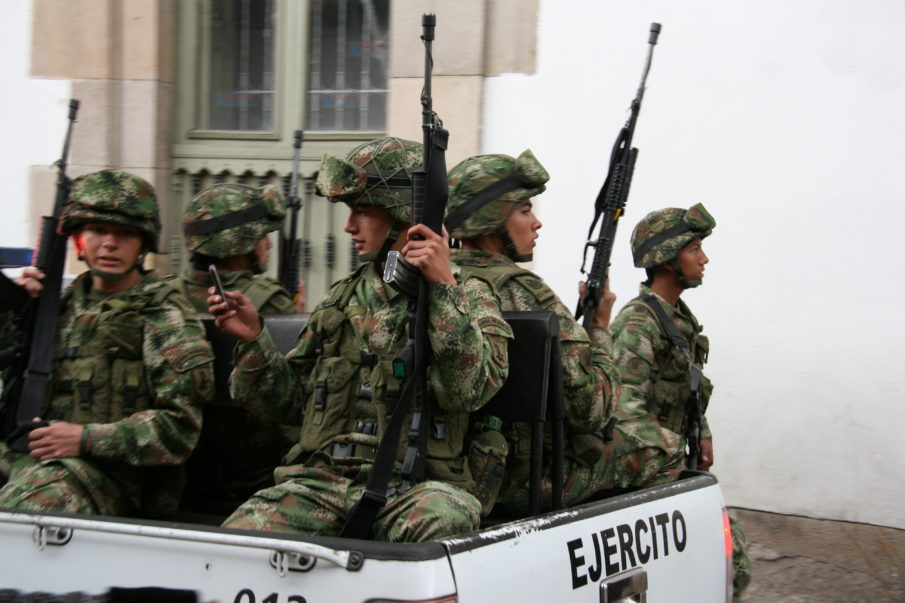The top US military officer in Latin America and the Caribbean recently praised the involvement of the region’s armed forces in fighting organized crime, a controversial stance likely rooted in the politics surrounding US security assistance to foreign countries.
In an August 17 speech that opened the South American Defense Conference inUruguay, Navy Adm. Kurt Tidd, the commander of US Southern Command (SouthCom), said that armed forces in Latin America and the Caribbean are adapting to a “global security environment [that] is the most complex, volatile, and unpredictable in at least the last half-century.”
“We’re no longer simply dealing with conventional conflicts that displace millions of people and destabilize entire regions,” Tidd said, “we’re also facing complex, networked threats like transregional crime and violent extremism that transcend borders and boundaries.”
Tidd’s comments fit with the stated theme of the conference, which was “the changing role of the military in the region.”
The SouthCom commander told the audience that new threats like those posed by criminal organizations “blur the lines between domestic security and defense,” and that responding to them requires “creative responses by re-conceptualized security forces.”
Tidd expressed support for militaries becoming more involved in meeting emerging security challenges. He credited the region’s militaries with “breaking new ground” and “charting a bold new course” in terms of their activities in the region, adding that they “are demonstrating an impressive commitment to improving security both within and beyond our borders.”
“I challenge all of us to be creative and bold in our thinking…especially when it comes to what comes next for our forces,” Tidd said.
Read More: Insight Crime
Featured Image – Military Police of Colombia in Zipaquirá, Cundinamarca – Wikimedia Commons
Already have an account? Sign In
Two ways to continue to read this article.
Subscribe
$1.99
every 4 weeks
- Unlimited access to all articles
- Support independent journalism
- Ad-free reading experience
Subscribe Now
Recurring Monthly. Cancel Anytime.
The top US military officer in Latin America and the Caribbean recently praised the involvement of the region’s armed forces in fighting organized crime, a controversial stance likely rooted in the politics surrounding US security assistance to foreign countries.
In an August 17 speech that opened the South American Defense Conference inUruguay, Navy Adm. Kurt Tidd, the commander of US Southern Command (SouthCom), said that armed forces in Latin America and the Caribbean are adapting to a “global security environment [that] is the most complex, volatile, and unpredictable in at least the last half-century.”
“We’re no longer simply dealing with conventional conflicts that displace millions of people and destabilize entire regions,” Tidd said, “we’re also facing complex, networked threats like transregional crime and violent extremism that transcend borders and boundaries.”
Tidd’s comments fit with the stated theme of the conference, which was “the changing role of the military in the region.”
The SouthCom commander told the audience that new threats like those posed by criminal organizations “blur the lines between domestic security and defense,” and that responding to them requires “creative responses by re-conceptualized security forces.”
Tidd expressed support for militaries becoming more involved in meeting emerging security challenges. He credited the region’s militaries with “breaking new ground” and “charting a bold new course” in terms of their activities in the region, adding that they “are demonstrating an impressive commitment to improving security both within and beyond our borders.”
“I challenge all of us to be creative and bold in our thinking…especially when it comes to what comes next for our forces,” Tidd said.
Read More: Insight Crime
Featured Image – Military Police of Colombia in Zipaquirá, Cundinamarca – Wikimedia Commons










COMMENTS